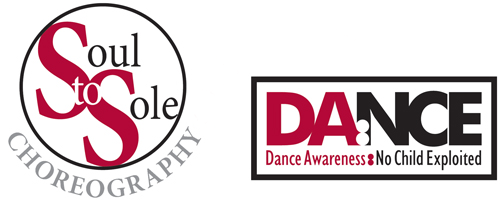 by Lisa Long
by Lisa Long
Over the past year I have become increasingly aware of the need to educate dancers, dance teachers and parents about the hyper-sexualization of children in dance and beyond. As a college Professor I encounter students just before they make their way into the dance world, and it is with immense hope that I share some remarkable moments that have occurred in my classes this past year.
I teach both Creative Dance for Children (CDC), a class geared to teaching the ins and outs of teaching dance in K-12, and Theory and Critique, which encourages students to form and articulate clear opinions based in fact. Within both of these courses, I present the thirty-minute video, Dance Awareness: No Child Exploited. After the initial emotional response, which usually explodes with unbridled fervor, students are able to step back and formulate personal and community-based solutions through critical inquiry and facts. Most of these dancers are already teaching in dance studios and as per expected, have a myriad of examples of inappropriate choreography, costumes and music. Many have worked with and have their own stories about choreographers whose unfortunate examples are highlighted in the video.
 Refreshingly, from these experiences, and this presentation, many students are mobilized to become activists in the studio and beyond. One example is from CDC student Emily Bodkin, a Childhood and Adolescent Development major. “I read through the long list of what is considered sexually suggestive in terms of children mimicking dance. A few examples mentioned included appropriated twerking, grinding, lip and finger-licking, straddling a prop, etc. While reading this list and thinking back to what I’ve seen in my early Child and Adolescent Development career, I can’t help but feel angry towards adult celebrities that are viewed as idols to children.
Refreshingly, from these experiences, and this presentation, many students are mobilized to become activists in the studio and beyond. One example is from CDC student Emily Bodkin, a Childhood and Adolescent Development major. “I read through the long list of what is considered sexually suggestive in terms of children mimicking dance. A few examples mentioned included appropriated twerking, grinding, lip and finger-licking, straddling a prop, etc. While reading this list and thinking back to what I’ve seen in my early Child and Adolescent Development career, I can’t help but feel angry towards adult celebrities that are viewed as idols to children.
A specific example that comes to mind is a child I nanny, age eight, who idolizes pop starts and Instagram models such as Kylee Jenner, Miley Cyrus, and Selena Gomez. Of these three celebrities I just named, Selena is probably the most innocent and would be considered the better role model when comparing her to Kylee and Miley. However, even Selena’s seemingly innocent selfies of her gazing into the camera and pouting her lips still has a significant impact on the way this eight-year-old views herself. The child I have watched grow up over the years now cannot get in front of a camera without posing just as Selena does in her photos. When I try to tell this eight-year-old that her natural smile and innocent eyes are so much more beautiful, she laughs and makes comments such as, “That’s what makes Selena loved.” Or, “I’m trying to be beautiful like Selena.”
The point is, early sexualization of children starts way before the mimicking of sexually explicit dance moves. This starts with the suggestive attitudes that young children are subconsciously learning from idolized, adult famous people who have passed these behaviors down as “normal.” Middle-aged children and young adolescents are the biggest victims due to this new social media craze.”
A second example is from my Theory and Critique students who, during a lively discussion, decided to take the Dance Awareness videos to the studios for whom they teach. They mobilized to educate not only the studio owners for whom they work but also planned showings for the parents of young dance students. These burgeoning teachers showed a remarkable outpouring of desire to address a problem that we see affecting our young ones in dance and beyond.
Becoming an activist about this topic has held both frustration and immense hope. Focusing upon the latter and sharing some of my observations has inspired my students which is, in turn, furthering the reach of this cause into many different communities. Here’s to vigilance and speaking out to make a difference!
—
Emily Bodkin, a Senior at CSUF studying Child and Adolescent Development; Active in childcare for the last 7+ years and is a certified BLS/CPR/AED Instructor for adults working with children and adolescents.
Lisa D. Long is a choreographer, dancer, and educator. Dancing for Dallas Black Dance Theatre, she created roles in works by Donald Byrd, Kevin Iega Jeff, George Faison, and Chuck Davis and for nine years was a principal dancer with Dance Kaleidoscope. Lisa’s choreography has been produced at: DUMBO Dance Festival NYC, Chartres Cathedral, Jacksonville Dance Theatre, Oregon Shakespeare Festival, and at Electric Lodge and Highways in LA. She holds an MFA from CalArts, a BFA from TCU. Currently Associate Professor at CSU Fullerton, she has also taught at CalArts, UCLA, and Butler University. Lisadlongdance.com
